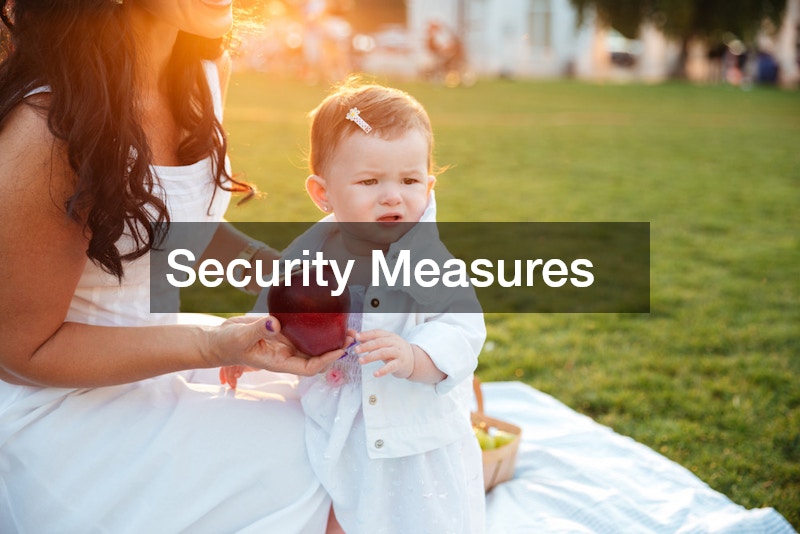Daycare centers play a crucial role in supporting families by offering a safe and nurturing environment for children while parents manage their work and other responsibilities. In today’s fast-paced world, finding a reliable daycare is essential for both parents’ peace of mind and children’s developmental needs. Choosing the right daycare environment is paramount because it can significantly affect a child’s growth, confidence, and early learning experiences.
Staff Educational Background
When evaluating daycare staff, parents should inquire about qualifications such as degrees in early childhood education or related fields. Staff with appropriate educational backgrounds are better equipped to understand and nurture children’s developmental stages.
A qualified team can provide a more supportive environment, enhancing the quality of care and learning.
Understanding the staff’s educational background can also give parents insight into the daycare’s commitment to professional development. It’s crucial that caregivers have foundational knowledge to foster intellectual and emotional growth. Therefore, selecting a daycare with staff possessing relevant qualifications can lead to more informed and child-centered approaches to daily activities.
Beyond degrees, credentials like certifications in early childhood care enhance a caregiver’s ability to handle routine and exceptional situations. Experience in specialized areas, such as language development or special needs, may also benefit diverse children. Parents should confidently ask about these aspects, ensuring that staff can adequately support their child’s individual needs.
Ongoing Training Programs
Continuous training is vital for daycare staff to stay updated with the latest best practices in child development and care. Encouraging staff to participate in ongoing professional development improves their skill sets and adaptability. This commitment to education demonstrates the daycare center’s dedication to providing the highest level of care.
Training programs in first aid and safety are crucial for preparing staff to respond effectively in emergencies. Such training can directly impact children’s safety, minimizing risks during unforeseen situations. By ensuring staff are well-versed in these areas, parents can feel more secure about their child’s well-being.
Staff-to-Child Ratios
Maintaining appropriate staff-to-child ratios is essential for ensuring each child receives sufficient attention and care. Smaller ratios allow caregivers to focus on individual needs and build stronger connections with children. High-quality daycares understand this dynamic and strive to adhere to recommended ratios to bolster their childcare services.
Parents should seek daycares with ratios that facilitate not only supervision but also interactive, personal engagement. Proper ratios contribute to safety, as staff can quickly attend to children and manage group dynamics effectively. Staff can better observe and respond to each child’s developmental cues and milestones in smaller groups.
Security Measures
Security measures are vital for safeguarding children in daycare centers and ensuring a protective environment. Essential features include surveillance systems, secure entry points, and visitor management protocols. These systems help monitor daily activities and restrict unauthorized access effectively.
Daycares with comprehensive security frameworks feel more reliable to parents entrusting their children’s safety to external caregivers. Security cameras placed in strategic locations act as both deterrents and tools for transparency in care practices. Ensuring that nurseries implement consistent safety measures is indispensable for parents evaluating daycare centers.
Health and Hygiene Standards
High standards of health and hygiene are crucial in daycare settings to prevent the spread of illness. Regular cleaning regimes, proper sanitization of toys and surfaces, and protocols for food handling are important aspects parents should investigate. A daycare’s commitment to hygiene reflects its dedication to creating a safe, healthy environment for children.
It is also vital for centers to have clear policies regarding sick children and outbreak management. Quick and efficient communication with parents helps mitigate the effects of contagious illnesses. Parents should ensure that rigorous hygiene practices are in place to protect their children from common ailments and to promote general wellness.
Emergency Procedures
Daycare centers must have robust emergency procedures to ensure child safety during critical situations. Methods to handle emergencies, such as fires or natural disasters, should be documented and regularly practiced by staff. Such preparedness not only protects children but also reassures parents of the center’s reliability.
Drills and simulations should be commonplace to familiarize children and staff with emergency protocols. These rehearsals aid in minimizing panic and ensuring orderly evacuations or lockdowns when necessary. By remaining informed about the daycare’s emergency plans, parents can evaluate the center’s readiness to manage crises.
Additionally, communication during emergencies is crucial, and centers should have systems to update parents promptly. Transparency regarding procedures and practices shows the daycare’s commitment to child safety. Parents should feel encouraged to inquire about these protocols, acknowledging the importance of vigilance and preparedness.
In conclusion, selecting the right daycare is a comprehensive process, requiring attention to staff qualifications, safety, curriculum, and parental involvement. Each aspect plays a pivotal role in creating a secure and stimulating environment for children’s early years. Parents are encouraged to be thorough and proactive in questioning these domains to ensure their child’s development is nurtured in a supportive, enriching atmosphere.
.





